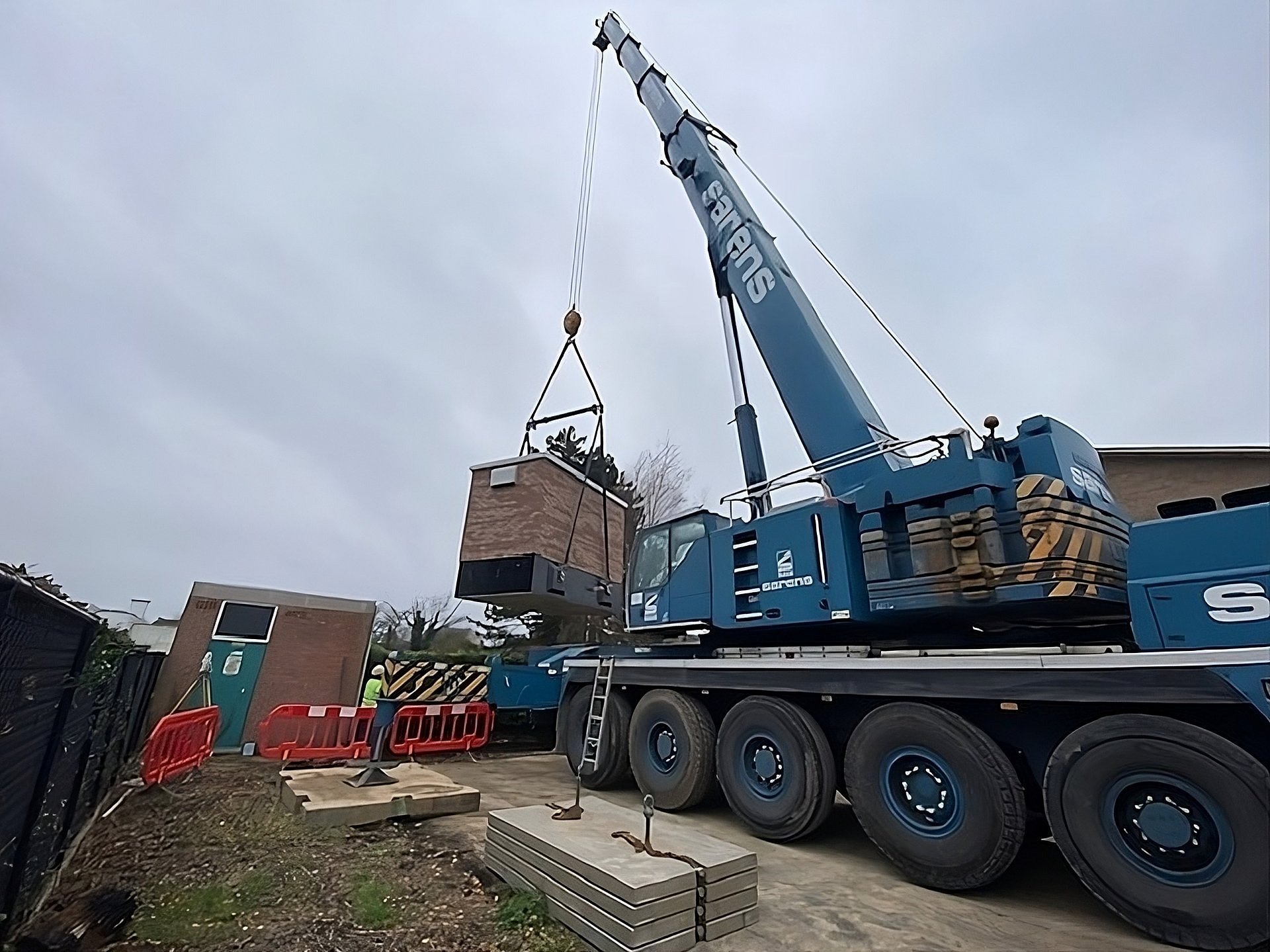Belgium continues to lead in terms of 5G coverage, with 97% signal coverage across the territory, but lags behind the leading cities in terms of 5G network quality and experience.
According to the European Commission's latest report on the ‘Digital Decade 2030’, fibre optic deployment remains the weak point, as although significant progress has been made in this area, Belgium continues to lag behind the rest of Europe.
Sarens is actively involved in the installation of fibre optic cables, raising and transporting points of presence (PoP) throughout the country in order to optimise the installation work, which is expected to last until 2030.
In 2023, pure fibre networks reached 25% of Belgian households, the lowest fibre coverage in the EU, but by early 2025 coverage had reached 43% of households. While growth has remained stable, with forecasts to reach 50% coverage by the end of 2025, 70% by 2028 and 95% by 2032, coverage continues to be higher in cities such as Brussels (57%), Bruges (47%) or Antwerp (over 40%), to the detriment of rural areas of the country.
On the other hand, the data provided by the consultancy Medux in its second report on the quality of 5G networks places Brussels far behind the leading cities in terms of 5G network quality and experience. The report highlights the need to improve latency and network quality by increasing mid-band (3.5 GHz) coverage and relaxing regulatory restrictions, in order to facilitate the deployment of autonomous 5G infrastructure and networks to enable advanced network and application features.
In order to achieve this coverage, Sarens, world leader in heavy lifting, engineered transport and crane rental services, actively participates in the installation of fibre optic cables by lifting and transporting points of presence (PoP) throughout the country. These PoPs are configured as the different physical locations where the telecommunications equipment that allows connection to the Internet via fibre optics is located. They are fundamental, as they act as an interconnection point where the fibre optic cables of the service provider's network connect with the distribution network that provides service to homes or businesses.
Taking into account their heavy weight, between 25 and 28 tons each, and the care with which the installation has to be carried out, the Sarens team is responsible for carrying out a preliminary field study to take into consideration the available work space, the type of soil and the traffic in the area. In this way it is possible to determine the appropriate machinery for transport, lifting and installation, as well as the safety measures required in each case, optimising the installation work throughout the country, which is expected to last until 2030.
This digital transformation process continues to move in the right direction. This is indicated by the European Commission's latest report on the ‘Digital Decade 2030’, which shows that Belgium leads in terms of 5G coverage, with 97% of the territory. However, the report still indicates that fibre optic deployment remains the weak point, as although significant progress has been made in this area, Belgium continues to lag behind other countries in Europe, especially in sparsely populated areas.
According to Bart Minnen, Country Manager of Sarens in Belgium, "Increasing the quality of the 5G network, as well as access to more advanced capabilities through the installation of robust fibre networks, represents a great opportunity for Belgium to drive innovation and competitiveness in the digital domain. In order to help achieve this goal, Sarens is making available its state-of-the-art equipment, its highly qualified team and its expertise in strategic projects to accelerate the process.
Sarens has extensive experience in critical infrastructure projects, both nationally and internationally. Having collaborated in works such as the installation of the 5,850 tonne OA14 bridge in Bettembourg (Luxembourg), the transport of new tanks for the modernisation of the Citrosuco plant in Ghent or the maintenance of Cargill's facilities, providing it with the necessary machinery to maximise biodiesel production, Sarens has consolidated its position as a strategic partner for the development of the region's infrastructures and economy.
About Sarens
Sarens is the global leader and reference in crane rental, heavy lift and engineered transportation services. With state-of-the-art equipment, value engineering, one of the world's largest inventories of cranes, transporters and special rigging equipment, Sarens offers creative and intelligent solutions to today's heavy lifting and engineering transport challenges.
With more than 100 entities in 66 countries operating without borders, Sarens is an ideal partner for small to large-scale projects. Sarens currently employs 5,000 highly qualified professionals who are ready to serve the needs of any client worldwide and in all market sectors. https://www.sarens.com/

